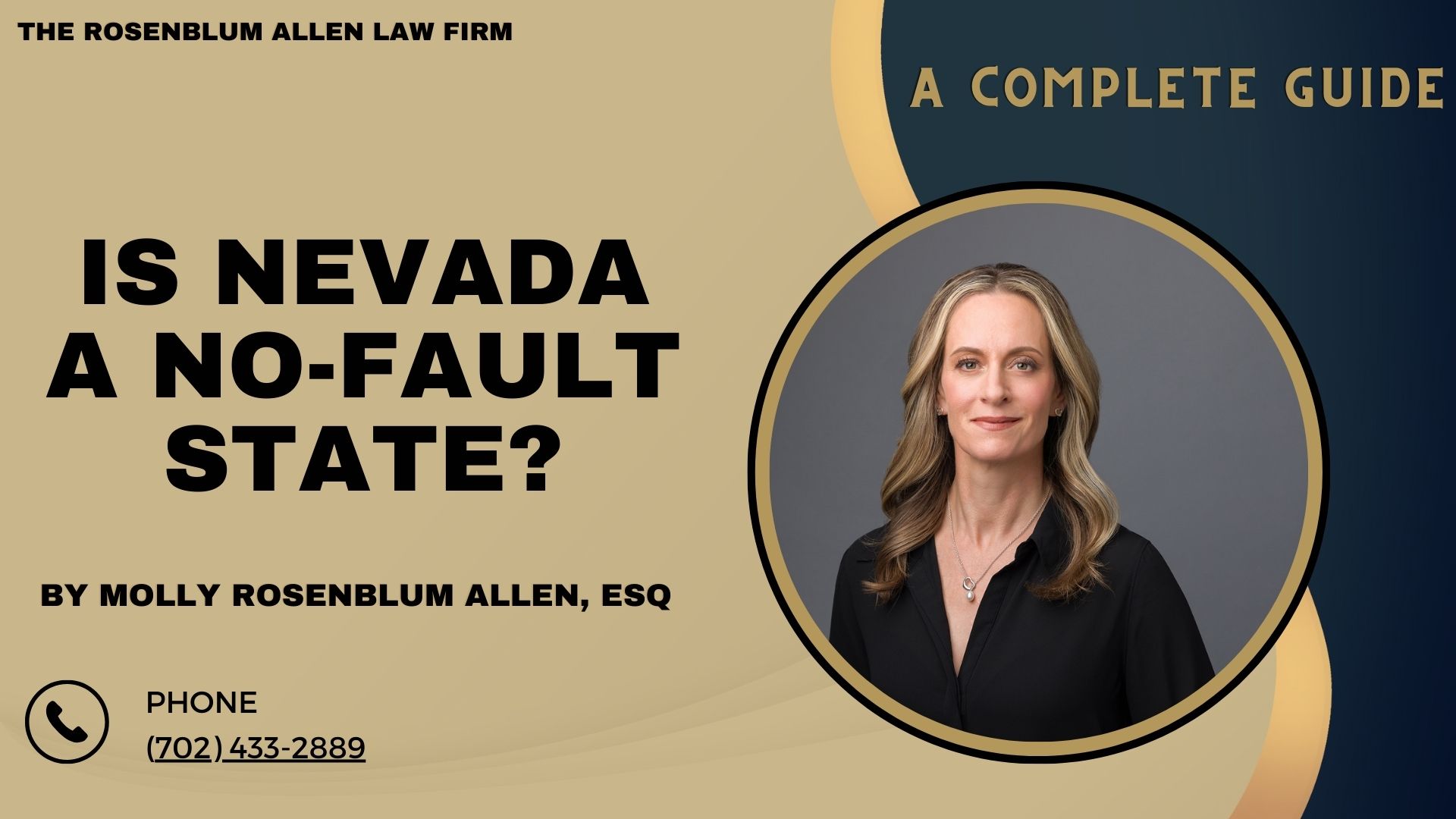Are you looking into Nevada’s laws, especially for auto insurance and divorce? You’ve found the right spot. Whether you live in Nevada, plan to, or are just curious, knowing these laws matter. Let’s break them down.
Understanding No-Fault Laws
No-fault laws can be complex. They shape how insurance claims work and influence legal actions after incidents.
Definition of No-Fault Laws
No-fault laws mean your insurer pays for your damages in an incident, no matter who was at fault. This aims to make compensation quicker without long legal fights over fault.
How No-Fault Laws Generally Work
No-fault laws usually require drivers to have Personal Injury Protection (PIP) insurance. This helps with medical bills and lost wages, regardless of fault.
Impact on Insurance Claims and Legal Actions
In no-fault states, suing or being sued over car accidents is limited. This reduces court cases over minor claims, focusing on serious disputes.
No-Fault vs. At-Fault: The Differences
It’s vital to know the difference. It affects how insurance and legal matters are handled after incidents.
Comparative Negligence in At-Fault States
In at-fault states, your compensation can decrease by your fault percentage in an accident. This aims for fair settlements but can lead to more disputes.
PIP in No-Fault States
PIP is crucial in no-fault states. It ensures immediate medical treatment and income loss coverage without waiting to determine who was at fault.

Is Nevada a No-Fault State for Auto Insurance?
Knowing whether Nevada is a no-fault state affects insurance policies and claim processes.
Nevada’s Auto Insurance Laws
Nevada is an at-fault state. Drivers must have liability insurance for the damages they cause.
Mandatory Coverage in Nevada:
Bodily Injury: $25,000 per person / $50,000 per accident
Property Damage: $20,000 per accident
Optional Coverages
Nevada drivers can add coverage for better protection:
Uninsured Motorist: Covers you if the other driver can’t pay.
Comprehensive: Pays for non-collision damage to your car.
Collision: Covers your car repairs after a crash, no matter who was at fault.
Determining Fault in Nevada
After a crash, figuring out who was at fault is critical for settling claims. Nevada uses:
Police Reports: Essential for insurance investigations.
Insurance Investigations: Each insurer looks into the accident to establish fault.
Nevada ensures the responsible party (or insurer) pays for accident-related costs.

Personal Injury Claims in Nevada
Filing a claim for personal injuries in Nevada can seem daunting. But don’t worry; we’re here to break it down for you. Knowing your rights and how the process works is critical. It will help you navigate these situations confidently.
Filing Personal Injury Claims in Nevada
Knowing the steps to take if you’re hurt in Nevada can make a big difference. Here’s what you need to do:
Statute of Limitations: You have two years from the injury date to file a lawsuit. Take your time, or you might lose your right to sue.
Proving Negligence: You must show the other party was at fault to win your case. This involves proving they owed you a duty of care, breached that duty, and caused your injury.
Seeking Compensation
When you’re injured, the financial impact can be significant. Here’s how compensation works in Nevada:
Types of Damages: You can seek economic damages for measurable losses like medical bills and lost wages. Non-economic damages cover pain and suffering, which are more subjective.
How Compensation is Calculated: The court looks at your losses to determine a fair amount. They’ll consider both the current and future impacts of your injury.

Divorce Laws in Nevada
Divorce is hard. But, Nevada’s laws aim to make it simple. Here’s a quick guide to understanding divorce in Nevada.
Is Nevada a No-Fault State for Divorce?
Yes, Nevada is a no-fault divorce state. This means you don’t have to prove your spouse did something wrong to get a divorce. You can cite irreconcilable differences as the reason.
Divorce Proceedings in Nevada
The steps to get a divorce in Nevada include:
Filing for Divorce: You or your spouse must live in Nevada for at least six weeks before filing. You submit your paperwork to the court, stating the reason for the divorce.
Division of Property: Nevada is a community property state. This means all assets and debts acquired during the marriage are divided equally, regardless of who earned or spent more.
Child Custody and Support: The court aims to make decisions that are in the children’s best interests. This can involve joint or sole custody, and child support payments are calculated based on income and needs.

Breaking It All Down
Navigating Nevada’s legal landscape means understanding auto insurance laws. It also means going through a divorce. It can be manageable. Nevada has a straightforward approach to auto accidents and personal injury claims. It also handles no-fault divorce. This approach simplifies what could be complex and stressful.
In an auto accident, Nevada operates on an at-fault system. This affects the need for the right insurance and the need to prove fault. For personal injury claims, the process is simple. Act in time and know how to prove fault. Then, you can seek payment for your injuries. Nevada has a no-fault stance on divorce. It offers a simpler path for such a personal matter. It focuses on fair solutions, not on blame.
Remember, after a car accident, when filing a personal injury claim, or navigating a divorce, asking a qualified lawyer for advice can bring peace. It can also protect your rights. Nevada’s laws are fair. But, a knowledgeable advocate can make all the difference in achieving a good outcome.
In the end, understanding these laws is key. Knowing when to get professional help can empower Nevada residents. It can also help anyone dealing with these issues. With knowledge and support, navigating Nevada’s legal system can be easy. It’s a journey toward resolution and peace of mind.

Frequently Asked Questions
Can I still file a lawsuit for a car accident in Nevada if I’m partially at fault?
Yes, Nevada allows lawsuits even if you’re partially at fault. However, any compensation you receive will be reduced by your percentage of fault.
How long does a divorce take in Nevada?
The timeline varies. An uncontested divorce can be finalized in weeks, while a contested one may take months or years, depending on complexity.
Are there caps on damages for personal injury claims in Nevada?
Certain damages have caps. For example, non-economic damages in medical malpractice cases are capped at $350,000.
What if the other driver in an accident doesn’t have insurance?
You can purchase uninsured/underinsured motorist coverage. It covers your damages if the at-fault driver lacks insurance.
How is child custody determined in a Nevada divorce?
Based on the child’s best interests, considering factors like parental cooperation and the child’s relationship with each parent.
Can I get spousal support in a Nevada divorce?
Yes, depending on factors like marriage length, financial condition, and recipient’s needs.
Do I need a lawyer to file for divorce in Nevada?
Not required, but advisable, especially in contested cases or complex matters.
How is property divided in a Nevada divorce?
Nevada is a community property state, so assets and debts acquired during marriage are divided equally.
Can I modify child support or custody arrangements after the divorce is final?
Yes, if there’s a significant change in circumstances, like job loss or relocation.
What happens if I miss the statute of limitations for a personal injury claim in Nevada?
Act within the time frame to preserve your claim and avoid losing your right to file a lawsuit.

Glossary
At-Fault State: A jurisdiction where the party responsible for causing an accident is liable for the damages. The fault must be established in these states to determine who pays for the damages.
No-Fault Laws: Legislation requires each party involved in an auto accident to file a claim with their insurance, regardless of who is at fault. These laws limit the ability to sue for damages.
Personal Injury Protection (PIP): A type of auto insurance coverage that pays for medical expenses, lost wages, and other non-medical costs, regardless of who caused the accident.
Comparative Negligence: A legal principle that reduces the amount of damages a plaintiff can recover in a negligence-based claim based on the degree of fault of each party.
Statute of Limitations: The maximum period after an event within which legal proceedings may be initiated.
Economic Damages: Compensation for quantifiable monetary losses, such as medical bills, lost wages, and property damage.
Non-Economic Damages: Compensation for non-monetary losses, such as pain and suffering, emotional distress, and loss of enjoyment of life.
Community Property: A legal principle in some states where all property acquired during the marriage is considered equally owned by both spouses and typically divided equally in a divorce.
Uninsured/Underinsured Motorist Coverage: This insurance protects you if you’re involved in an accident with a driver who either does not have insurance or does not have enough insurance to cover the damages.
Liability Insurance: Coverage that pays for another individual’s bodily injuries or property damage for which you are responsible. It is mandatory in most states, including Nevada.
Divorce Proceedings: The legal process of dissolving a marriage, which includes resolving issues such as asset division, child custody, and spousal support.
Alimony: Financial support paid by one ex-spouse to the other after divorce, based on an agreement between the couple or a court decision.
Child Custody: Legal terms that describe the legal and practical relationship between a parent and child, including the right to make decisions for the child and the parent’s duty to care for the child.
Best Interests of the Child: A standard that courts use to decide custody issues, focusing on the child’s happiness, security, mental health, and emotional development.

Additional Resources for You
To further assist our readers in their time of need, our lead attorney, Molly Rosenblum Allen, Esq., has developed a comprehensive suite of resources. Whether you’re facing the aftermath of a personal injury, car accident, motorcycle accident, wrongful death, truck accident, drunk driving accident, or a slip and fall incident, we have tailored guidance ready for you. Each resource is designed to offer effective legal advice and support, ensuring you’re well-equipped to navigate these challenging times.
- For Personal Injury guidance, visit our dedicated section at Las Vegas Personal Injury Attorney.
- If you’ve been in a Car Accident, find specialized help at Las Vegas Car Accident Attorney.
- Motorcycle Accident concerns can be addressed by visiting Motorcycle Accident Lawyer Las Vegas.
- For assistance with Wrongful Death cases, check out Wrongful Death Lawyer Las Vegas.
- If a Truck Accident has affected you or a loved one, find support at Truck Accident Attorney Las Vegas.
- For Drunk Driving Accident legal advice, explore Las Vegas Drunk Driving Accident Attorney.
- Slip and Fall incidents are covered in detail at Las Vegas Slip and Fall Attorney.
Each of these resources has been meticulously created by Molly Rosenblum Allen, Esq., with the goal of providing you with the legal knowledge and support you need during challenging times.

Outside Resources for You
In addition to these resources created by Molly Rosenblum Allen, Esq., we suggest the following offsite resources for further information and support:
American Bar Association (ABA): Offers a wealth of information on various legal topics, including personal injury and family law. Visit site
National Highway Traffic Safety Administration (NHTSA): A crucial resource for information on traffic safety and accident prevention. Visit site
FindLaw: Provides a broad range of legal resources and articles on a variety of topics, including personal injury and divorce law. Visit site
American Association for Justice (AAJ): Offers resources and support for victims seeking justice in personal injury and other legal matters. Visit site
National Association of Personal Injury Lawyers (NAPIL): A directory of personal injury lawyers across the United States, providing access to legal assistance. Visit site
State Bar of Nevada: The official site for the Nevada State Bar, offering resources for the public and legal professionals alike. Visit site
United States Courts: Provides information on the federal courts system, offering insights into legal processes and court procedures. Visit site
These resources, alongside the dedicated sites created by Molly Rosenblum Allen, Esq., are designed to equip you with the knowledge and support needed to navigate your legal challenges effectively.

A Special Message from Our Lead Attorney, Molly Rosenblum Allen, Esq

Dear Readers,
Thank you for exploring the resources we’ve compiled. They will help you understand Nevada’s complex law. You may be facing challenges with auto insurance laws. Or, you may be navigating a personal injury claim or dealing with a divorce. We’re here to help guide you at every step.
I’m Molly Rosenblum Allen, Esq. My team and I at The Rosenblum Allen Law Firm are committed to giving you the help and skill you need. We’ll do this in these tough times. We aim to offer you legal representation that meets and exceeds your expectations.
Don’t hesitate to get in touch with us if you’re ready to discuss your situation and see how we can assist you further. You can call my team and me at (702) 433-2889 to discuss your legal needs. We’re here to listen, understand, and work with you to navigate the complexities of the law.
Thank you again for your trust in us. We look forward to the opportunity to serve you.
Warm regards,
Molly Rosenblum Allen, Esq.
The Rosenblum Allen Law Firm






